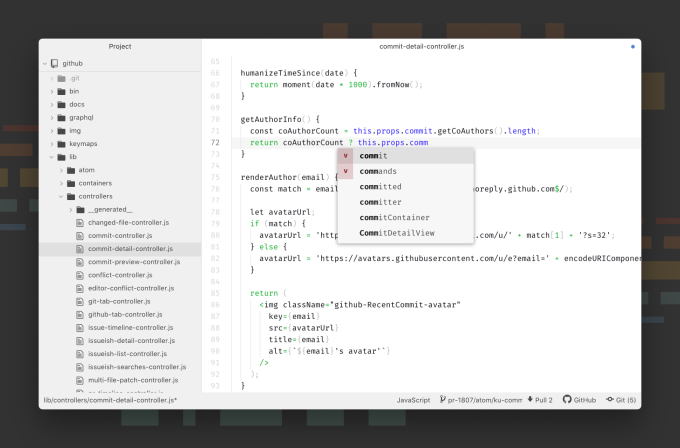GitHub today announced that it will sunset Atom, the text editor for software development that the company introduced in 2011. In a blog post, GitHub said that it will archive the Atom repository and all other repositories remaining in the Atom organization on December 15, 2022.
Atom served as the foundation for the Electron framework, which paved the way for thousands of apps including Microsoft Visual Studio Code, Slack, GitHub’s own GitHub Desktop. But GitHub asserts that Atom community involvement has declined as new tools have emerged over the years. Atom itself hasn’t seen significant feature development for the past several months beyond maintenance and security updates.
“When we introduced Atom in 2011, we set out to give developers a text editor that was deeply customizable but also easy to use — one that made it possible for more people to build software,” GitHub wrote in a blog post published this morning. “[R]eliability, security, and performance are core to GitHub, and in order to best serve the developer community, we are archiving Atom to prioritize technologies that enable the future of software development.”

Image Credits: GitHub
GitHub says that it’ll refocus its efforts on Microsoft Visual Studio Code (VS Code) and GitHub Codespaces, its cloud-powered development environment, going forward. “We recognize that Atom is still used by the community and want to acknowledge that migrating to an alternative solution takes time and energy,” the company continued.
Curiously, VS Code launched in 2015 as something of an answer to Atom. Microsoft’s acquisition of GitHub in 2018 brought Atom and VS Code under one roof, cannibalizing the latter. But VS Code’s popularity continued to grow. According to Stack Overflow’s 2021 developer survey, just 13% of developers use Atom as their primary environment; VS Code is used by 71%.
It’s not the end for Atom, necessarily. Once archived, the code will be available for developers to inspect and build on. And one of the project’s core contributors, Max Brunsfeld, is leading an effort to launch a spiritual successor called Zed, which will launch in private alpha this week.

